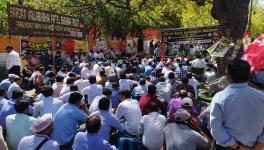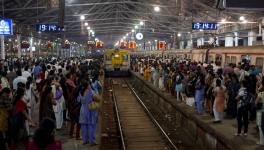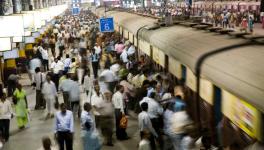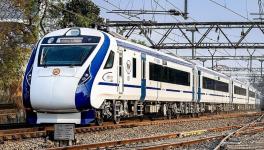COVID-19: Indian Railways Plans Massive Expenditure Cuts to Tide over Economic Crisis
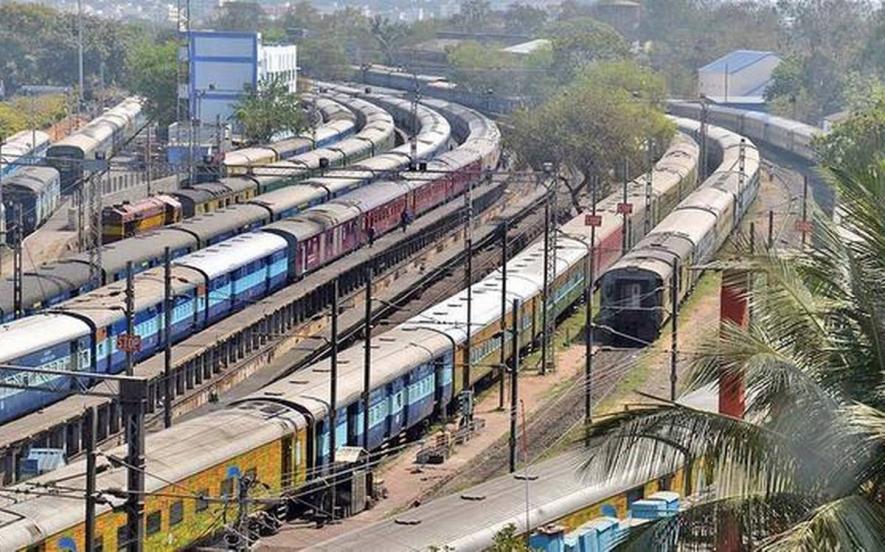
Image for representational use only.Image Courtesy : The Hindu
Reeling under the COVID-19 pandemic, Indian Railways is firming up its strategy to tide over the crisis which has adversely impacted the economy worldwide.
The state-run transporter is mulling over some drastic steps such as freezing creation of new posts except for the safety category, closure of uneconomic rail lines and curtailing the staff re-engaged after retirement among others to reduce the expenditure significantly.
Railway Board has instructed all zones and production units to take steps for exploring new areas of expenditure control and enhancement of earnings.
Reduction of ticket counters, minimising expenditure on annual General Manager and Divisional Railway Manager inspections and redeployment of Enquiry Cum Reservation Clerks due to decrease in over-the-counter reservations are some other measures in consideration.
Referring to the annual General Manager and DRM inspection, a big affair entailing a huge expenditure of resources and manpower, railways has directed it to be a "silent and low key affair with minimum number of staff required".
With the suspension of regular passenger train operations till August 12 and substantial reduction in demand for Shramik service, the Railways will press for more special trains now as restarting the time-tabled mail/express is unlikely to happen soon.
More passenger trains are to be launched now as special trains depending on the demand and the COVID-19 situation on specific routes, said a senior Railway Ministry official.
Railways, which used to run about 12,000 passenger-carrying trains daily, is currently running just 230 special trains including 30 Rajdhani-like AC services. Since May 1, Railways had operated 4,596 Shramik Specials carrying 62.8 lakh passengers so far.
“We are ready to run more Shramik trains within 24 hours of a request from the concerned state governments,” said the official.
According to railways, many special trains returning to big cities like Bangalore, Mumbai, Pune, Secunderabad, Ahmedabad from Odisha, Bihar, Uttar Pradesh, etc. have had full occupancy implying that the migrants are returning to the cities for work.
Also read: Amid Pandemic, Verbal Lay-offs and Pay Cuts Expose State of Indian Media
Earlier, special trains for Bihar, UP, Odisha and Bengal were running with full capacity, but decreased occupancy on the return journey of these trains. Now, the return journeys have started witnessing over 100% occupancy rate as per the available data available for until June 30.
Most of the migrant workers who had travelled back to their villages in Shramik Specials were stranded in Delhi, Surat, Mumbai, Kolkata, Tamil Nadu, Punjab, Visakhapatnam and Bengaluru. In the coming days though, many migrants are slated to return to cities for work.
The cost-cutting exercise by the Railways is also set to impact material procurement with Railway Board suggesting that "procurement should be deferred in such a manner that unused inventory is minimised".
Since it plans to electrify all major routes, it has sought grounding of all diesel locos that are more than 31 years old through sale, while seeking review of usage of high-speed diesel oil and energy audit of major load centres.
The railways' directives have suggested a critical review of onboard housekeeping services, linen management, station cleaning, lift and escalator manning and station announcements.
"Review of posts created in the last two years should be done and if recruitment has not been done against those posts, the same may be reviewed for surrendering," the Railway Board letter containing a series of economic measures and rationalisation of expenditures stated.
In order to tighten the expenditure, the directives sought "review and closure of uneconomic branch lines to the extent possible".
"It may be clearly borne in mind that mere deferment of bills/payment is not expenditure control. Effort has to be in controlling activities, works, purchases and all contractual obligations so that the liabilities are controlled within available funds, the allocation of which should be prioritised," according to the expenditure management formulated by the Railways.
Also read: COVID-19 Looms Over North-East, But is it Prepared?
Arun Kumar Das is a Delhi-based journalist and can be contacted at akdas2005@gmail.com.
Get the latest reports & analysis with people's perspective on Protests, movements & deep analytical videos, discussions of the current affairs in your Telegram app. Subscribe to NewsClick's Telegram channel & get Real-Time updates on stories, as they get published on our website.











